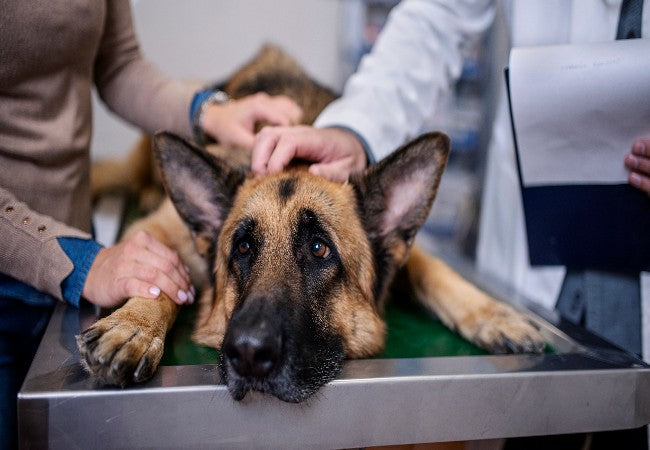Vet Guide to Cold & Flu Medication Toxicity in Dogs 2025 🐶⚠️

In this article
Vet Guide to Cold & Flu Medication Toxicity in Dogs 2025 🐶⚠️
By Dr. Duncan Houston BVSc
Many over‑the‑counter cold and flu medications we use contain active ingredients that are dangerous—or even fatal—to dogs. In this 2025 guide, I’ll help you understand which ingredients are toxic, how to recognize early warning signs, what to do if your dog makes a mistake, and how to keep your medications secure. 💊🐕
📍 Common Toxic Ingredients
- Acetaminophen: Causes liver failure and methemoglobinemia—blue gums, rapid breathing, anemia.
- NSAIDs (Ibuprofen, Naproxen): Lead to GI ulcers, kidney and liver damage.
- Pseudoephedrine / Phenylephrine: Can cause tremors, increased heart rate, seizures.
- Dextromethorphan: Cough suppressant—may result in vomiting, agitation, tremors or seizures.
- Xylitol (in cough drops): Triggers dangerous low blood sugar and liver damage.
⚠️ Signs of Poisoning
- Vomiting, diarrhea, drooling
- Rapid breathing, increased heart rate, tremors or seizures
- Blue gums (methemoglobinemia), lethargy
- Blood in vomit/stool or stomach ulcers
🧰 What to Do Immediately
- If ingestion is suspected, contact your vet or Pet Poison Helpline at once.
- Do not induce vomiting at home unless directed—risk of further harm.
- Bring the medication packaging to the vet for exact ingredient and dosage info.
- In-clinic treatment may include:
• Activated charcoal and intravenous fluids
• N-acetylcysteine (for acetaminophen toxicity)
• Medications/vitamin K to protect organs and control bleeding
• Hospital care, oxygen or blood transfusions in severe cases
🛡️ Prevention Tips
- Store medicines securely—locked cabinets or containers
- Dispose of expired meds properly; don’t leave pills in open containers
- Keep pets away from counters, purses, and bags where meds may fall
- Be cautious when administering any human meds—double-check active ingredients
✅ Vet Tips by Dr Duncan Houston BVSc
- ✔ Always call poison control or your vet—quick action saves lives.
- ✔ Share full ingredient and dosage info for every product at the vet.
- ✔ In emergencies, time is critical—hospitalization can prevent organ damage.
- ✔ Create a pet-safe cabinet: secure human and pet meds out of reach.
If your dog accidentally consumes a cold, flu, or pain medication—don’t wait. For immediate support, use the AskAVet.com app or call poison control.we can help protect your pet from dangerous toxicity. 🐾❤️






